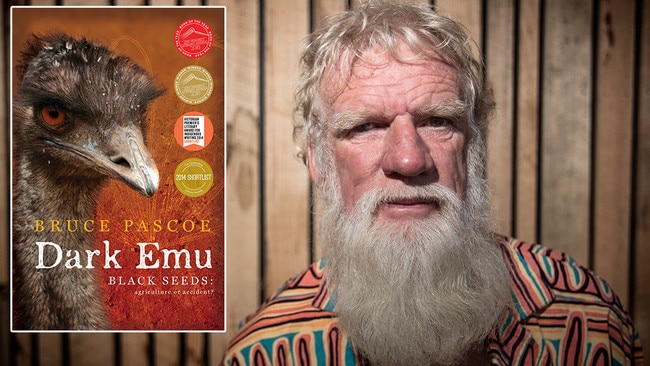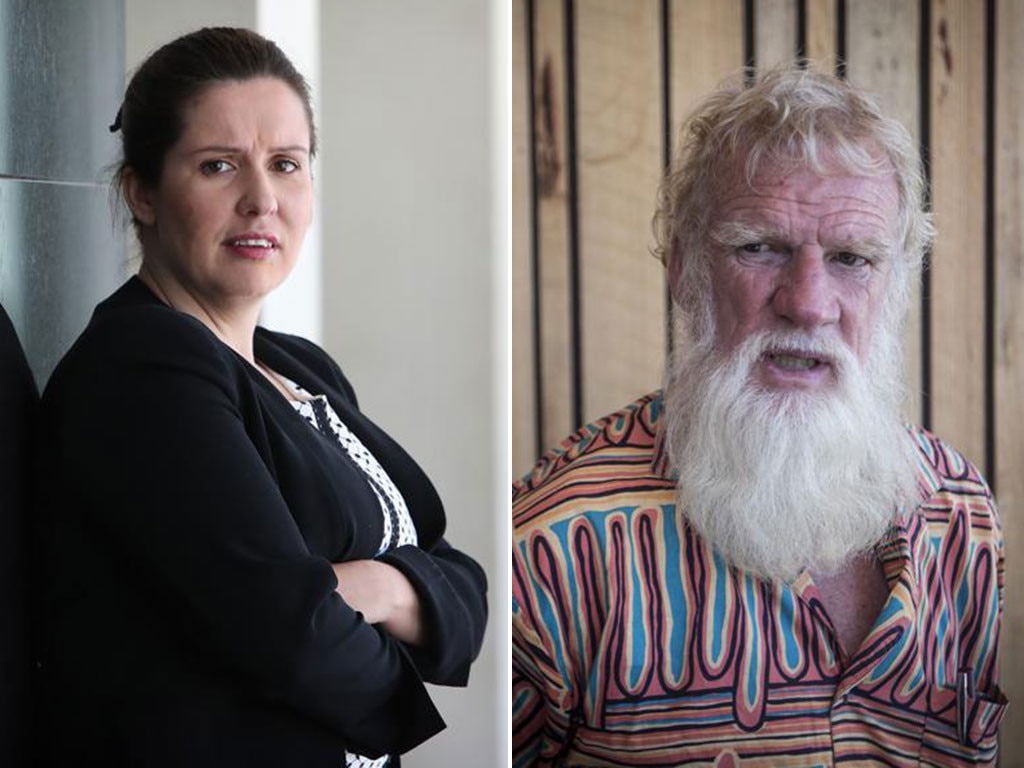
But those truths were hidden from us: “our country’s history” was “edited, so that our children (would) never question our right to the soil”. Ruthlessly suppressed was the “advanced nature” of the Aborigines’ “ancient agricultural economy”, which placed Indigenous Australia on a development trajectory that stood “ahead of many other parts of the world”.
And suppressed, too, were achievements that stretched from the first baking of bread — “an idea far more important to humanity than the moon landing” — to the development of villages of “one thousand people” in “permanent housing”: achievements that meant the Aboriginal economy deserved a “much higher rank than some of the nations considered the hallmark of human evolution”.
Good thing, then, that Pascoe’s Dark Emu finally pierced the shroud of ignorance in 2014 and emerged as a bestseller. And good thing, too, that so epochal a contribution won a swag of the nation’s most prestigious literary prizes, was transformed into texts widely used in schools, shaped the Indigenous sections of the new national curriculum and earned its author the Australia Council’s lifetime achievement award.
But, it now turns out, the only editing of this country’s history was that done by Pascoe himself.
As eminent anthropologist Peter Sutton and archaeologist Keryn Walshe meticulously demonstrate in Farmers or Hunter-Gatherers?, released this week by Melbourne University Press, Dark Emu is “poorly researched, distorts and exaggerates many old sources, ignores large bodies of information that do not support the author’s opinions (and) contains a large number of factual errors”.
Highlighting instance after instance in which Pascoe doctors key quotes, misrepresents dates, places and numbers, and miscites crucial references, they expose conduct that would be widely considered unacceptable.
And the problems they identify are, if anything, greater in the educational material Pascoe has influenced or prepared, which, they write, would “seriously mislead” young people and “should be withdrawn by any educational authority currently using it”.
However, Dark Emu’s glaring flaws do not just lie in the distortions of fact and authority on which it bases its wildly implausible claims; even more troubling is its fundamental disregard for Indigenous culture.
In effect, what it presents as admirable in precolonial Indigenous society is not what makes it distinctive but what brings it closer to us: the alleged complexity of its technology; the scale of its tribal gatherings; the supposed durability and number of its dwellings.
Dark Emu’s rigidly ethnocentric conception of merit, in which quantity is confused for quality, is, as Sutton and Walshe wryly observe, resolutely “Texan”.
But to view Indigenous culture through that prism is utterly misguided. That culture was not oriented to material affluence, and even less to technological change.
Rather, Sutton and Walshe write, “for the Old People, making a living and obtaining materials for artefacts were inseparable from their commitment to a spiritual understanding of the origin of species, to conservative values in relation to change and to a cosmology in which economics had to be in conformity to ancestral authority”. They lived, in other words, in what philosopher Charles Taylor has described as a “world brimming with presences”, in which the spiritual and the temporal, the natural and the supernatural, were fused within a cosmic order that was not to be manipulated and transformed — as it was in the West — but revered and maintained.
What we would now call faith was not a distinct sphere of life; it was inseparable from life itself, there forever, from the Dreaming, whose latent powers, including for the cyclical regrowth of plants and animals, were to be preserved through obedience to its demands. And where technologies — such as their Melanesian neighbours’ agricultural and horticultural methods — had not been sanctioned by the Dreaming, they rejected them, not out of ignorance but out of respect for the transcendent foundations of earthly existence.
In contrast, Pascoe’s caricature – which “consistently pushes the evidence of Aboriginal subsistence beyond what it can factually bear and into a European model of economic life … as if the more European the Old People can be made to seem, the better” – robbed that world of its spirituality. That certainly made Dark Emu all the more attractive to the staunchly secular “progressives”, who are its fiercest defenders; but it also made Pascoe incapable of understanding, much less explaining, the Indigenous world’s stability and persistence.
Ultimately, it condemned his book to being little more than “a popularised mythology of history” that “does not respect or do justice to” the societies it purports to admire.
Yet this question remains: how can it be that in a country that has a long tradition of first-rate scholarship in anthropology and archaeology, it took seven years to bring Pascoe to account? After all, the errors were seemingly obvious to trained readers; but the silence from the academy was as deafening as it was disturbing.
No doubt the answer lies partly in the politically charged nature of the issues — a political charge Pascoe himself sought to intensify. Contentiously identifying as Aboriginal, he repeatedly presented his book as a defence of Indigenous people; it followed, in a warped syllogism, that to criticise it would be to attack them.
And with access to remote sites now conditional on securing Indigenous approval, any researcher who was branded as a racist faced the threat of being excluded from the field work needed to build a career.
But an even more powerful force has also been at work: the conviction, which has become pervasive in our universities, that telling the truth, instead of being the first and greatest duty, is not as important as achieving social goals. Being right matters far less than being on the right side; and it is immeasurably worse to concede a point to the wrong side than to tolerate error.
That is a recipe not for advancing knowledge but for entrenching ignorance. It can only make us a poorer and stupider country, while training future generations in conformity rather than intellectual honesty.
In subjecting Dark Emu to the most painful, but most valuable, of science’s tests, the test of fact, Sutton and Walshe break that mould. Their courage not only does this country and its Indigenous people an immense service; it also shows that, despite everything, our finest scholars are still capable of producing “books with spine”.








If only Australians had been told the truth, claimed Bruce Pascoe, they would have known that Indigenous societies, as they existed before European settlement, were anything but primitive communities of “mere hunter-gatherers” whose “simple lot” was to “wander haplessly” across the continent’s length and breadth.